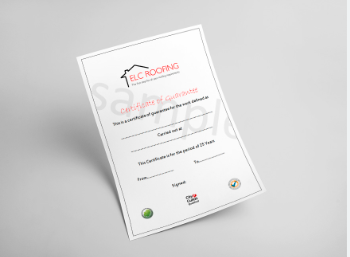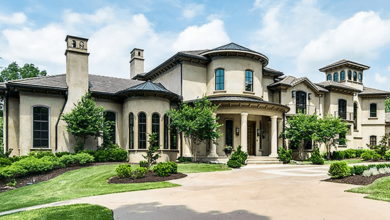Roofing Warranty and Guarantees: Understanding Coverage and Protection

Investing in a new roof is a significant decision for homeowners, and understanding the warranties and guarantees that come with this investment is crucial. Elite Roofing and Consulting‘s roofing warranties and guaranteesprovide protection and peace of mind, ensuring that the materials and workmanship meet certain standards. We will explore the types of roofing warranties and guarantees, their coverage, and the key aspects homeowners must understand to make informed decisions.
Types of Roofing Warranties
Roofing warranties generally fall into two main categories: material warranties and workmanship warranties. Roofing materials manufacturers provide material warranties. These warranties cover defects in the roofing materials, such as shingles, tiles, or metal panels. Material warranties typically guarantee that the materials will not fail due to manufacturing defects for a specified period, often ranging from 20 to 50 years, depending on the quality and type of material. For instance, asphalt shingles may come with a 20 to 30-year warranty, while metal roofs can have warranties extending up to 50 years.
A key aspect of material warranties is the coverage details. These warranties often cover granule loss, blistering, and shingle cracking. However, it is important to read the fine print, as some warranties may be prorated. Prorated warranties reduce coverage over time, meaning that the longer you have the roof, the less compensation you may receive if a claim is made. Additionally, material warranties usually require proper installation and regular maintenance for the coverage to remain valid. Homeowners should ensure qualified professionals install their roofs and follow maintenance guidelines to avoid voiding the warranty.
On the other hand, workmanship warranties are provided by the roofing contractors who install the roof. These warranties cover issues arising from the installation process, such as leaks or improper material fitting. Workmanship warranties vary widely in duration and coverage, typically 1 to 10 years. Some contractors may offer extended workmanship warranties, providing longer-term protection against installation-related issues. A comprehensive workmanship warranty can strongly indicate a contractor’s confidence in their work.
Understanding the terms and conditions of workmanship warranties is crucial. These warranties usually cover defects caused by installation errors but may exclude damage from external factors like severe weather or homeowner neglect. Homeowners should thoroughly review the warranty terms and ask contractors to explain any exclusions or conditions. It is also beneficial to check the contractor’s track record and reputation to ensure they are reliable and likely to honor their warranty commitments.
Read also: Top Reasons to Contact a Dallas Roofing Company for Your Tile Roofing Needs
Key Aspects of Roofing Warranties
Several key aspects should be considered when evaluating roofing warranties to ensure comprehensive coverage and protection. One important factor is the duration of the warranty. Longer warranties provide extended protection and peace of mind, but it is essential to understand the specifics of what is covered during the entire warranty period. Some warranties may offer full coverage for a certain number of years, followed by prorated coverage for the remaining period. Homeowners should clarify these details to know exactly what to expect regarding coverage over time.
Another critical aspect is the coverage of labor costs. Material warranties typically cover the cost of replacing defective materials but may not include labor costs for removing the old materials and installing the new ones. On the other hand, workmanship warranties generally cover labor costs associated with fixing installation errors. Homeowners should inquire whether the warranty includes labor costs and, if not, be prepared for potential out-of-pocket expenses if repairs are needed.
Transferability is another important consideration, especially for homeowners who plan to sell their property. Some roofing warranties are transferable to new owners, which can be a valuable selling point. Transferable warranties ensure that the new owners continue to receive the warranty benefits, adding value to the home. Homeowners should check the warranty terms to see if they are transferable and if any specific steps need to be taken to transfer the warranty to a new owner.
Exclusions and limitations are also crucial to understand. Warranties often come with exclusions that limit the scope of coverage. Common exclusions include damage caused by natural disasters, improper maintenance, or modifications made to the roof after installation. Reviewing these exclusions carefully and discussing any concerns with the manufacturer or contractor is important. Additionally, homeowners should follow maintenance guidelines and avoid unauthorized modifications to ensure the warranty remains valid.
Lastly, homeowners should consider the process for filing a warranty claim. Understanding the steps involved and the documentation required can streamline the process if an issue arises. Typically, homeowners need to provide proof of purchase, detailed information about the problem, and documentation of regular maintenance. Promptly addressing any issues and keeping thorough records can help facilitate the warranty claim process and increase the likelihood of a successful resolution.
Conclusion
Roofing warranties and guarantees are essential components of a roofing investment, providing homeowners protection and peace of mind. Homeowners can make informed decisions about their roofing projects by understanding the different types of warranties, such as material and workmanship warranties, and the coverage they offer. Key aspects to consider include the duration of the warranty, coverage of labor costs, transferability, exclusions, and the claims process. Thoroughly reviewing these factors and asking the right questions can ensure that homeowners receive the protection they need and maximize the value of their roofing investment. Properly understanding and utilizing roofing warranties can safeguard against unexpected expenses and extend the roof’s lifespan, ultimately enhancing the overall quality and security of the home.





